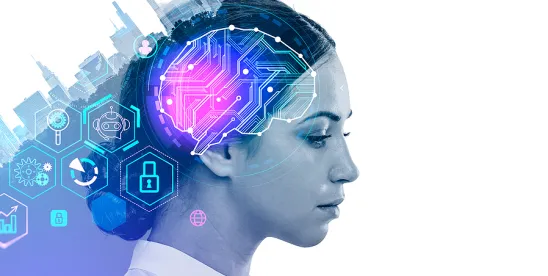Patient biomarkers are now used in personalized medicine to predict disease progression, minimize side effects, and maximize therapeutic benefits in the treatment of disease. In oncology, the use of biomarkers has increased treatment response rates from 20% to 42% when a biomarker is used in treatment decisions.2
Traditional biomarker discovery typically used a single quantifiable trait (for example, the presence of a genomic trait), which limits the ability to capture the intricate complexities of disease progression and response.2 In contrast, artificial intelligence (AI) and machine learning (ML) can source patients’ medical history, genetic information, demographics, and lifestyle factors to analyze more data that may impact disease prediction, progression, and response.
Two recent reports1, 2 highlight the challenges of using AI and ML that rely on biomarker matching. Integration of large datasets sourced from different reference laboratories and clinical trials is complex, laborious and time-consuming.2 Added to that is the large volume of the data, requiring sophisticated tools to analyze and integrate the data, especially for complex diseases like cancer and autoimmune disorders.2 Also, because patient data is used, data security and privacy need to be taken into account.1 Moreover, there is the potential for bias at several levels: in the AI algorithms or training data, and potentially from the data collectors themselves.1 Finally, patients would have to accept and adopt the use of the technology, allowing their personal medical history and outcomes to be utilized to train and improve the algorithms.1
Unifying the storage of clinical data to simplify the training application of AI systems, and creation of uniform guidelines for the use of biomarker data could improve current systems.2 In addition, synergistic partnerships between investigative researchers and clinical practitioners could support the ethical use of the technology and support the discovery of biomarkers that are directly relevant to clinical practice. While challenges remain, there is no doubt that AI is transforming the delivery of health care and advancing personalized medicine.
- Li et al. (2024), Innovation and Challenges of Artificial Intelligence Technology in Personalized Healthcare, https://doi.org/10.1038/s41598-024-70073-7.
- Cioffi, M. and Nicks, B. (2024) The role of AI in Predictive Biomarker Patient Matching, https://endpts.com/sp/the-role-of-ai-in-predictive -biomarker-patient-matching/.




 />i
/>i
